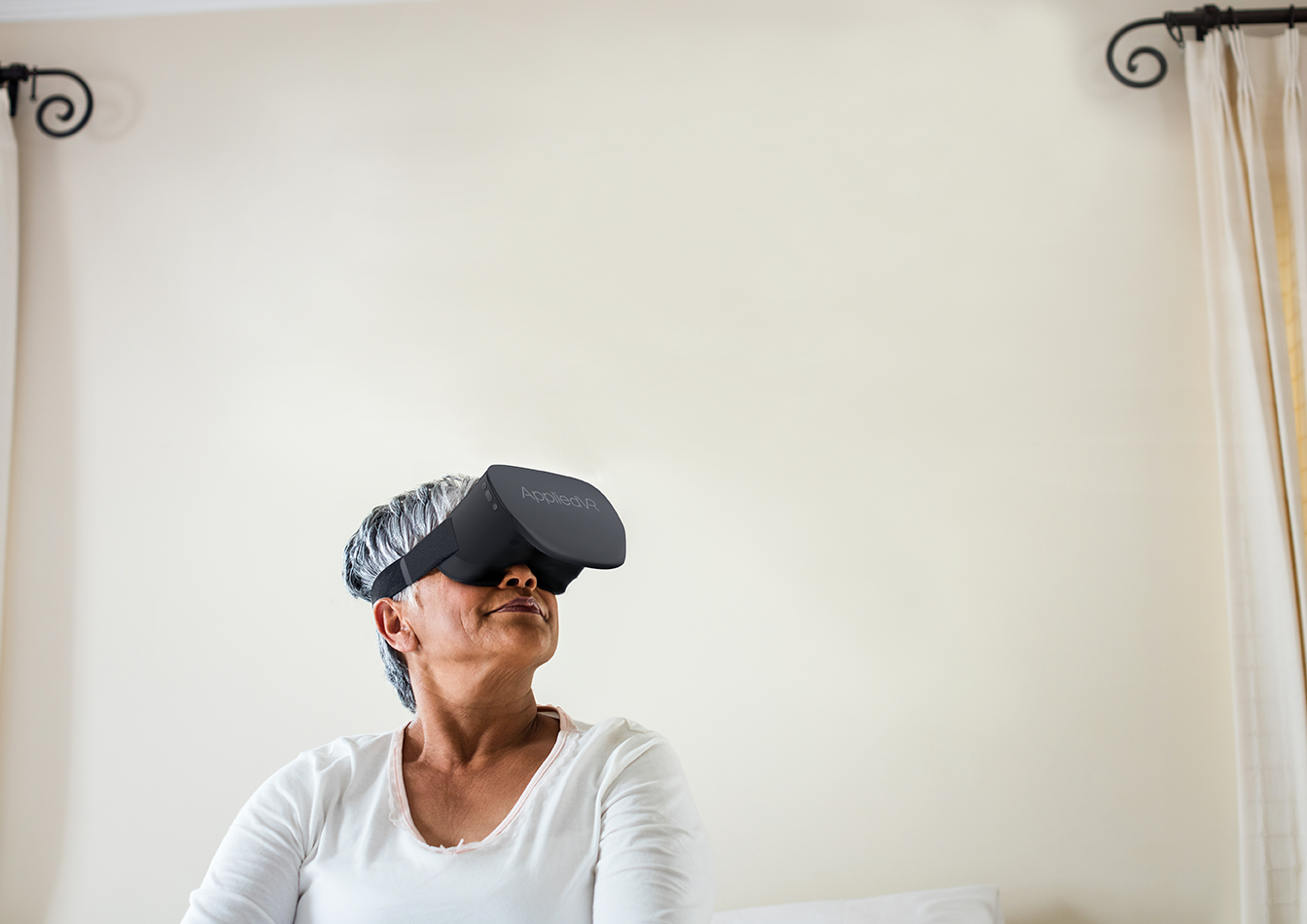
What You Should Know:
– AppliedVR, an L.A.-based advancing the next generation of immersive therapeutics, today announced that the U.S. Food and Drug Administration (FDA) has granted de novo approval for its flagship immersive therapeutic, EaseVRx, to treat chronic low back pain, which previously received breakthrough device designation in 2020. The news also comes on the heels of AppliedVR announcing its $36M series B funding round, bringing its total funding to $71M.
– Following its first FDA approval, AppliedVR plans to continue testing to demonstrate the clinical efficacy and cost-effectiveness of using VR to treat pain, most notably completing multiple health economics and outcomes (HEOR) studies with commercial payers. AppliedVR also is currently collaborating with Geisinger and Cleveland Clinic to advance separate NIDA-funded clinical trials that test VR as an opioid-sparing tool for acute and chronic pain.
Virtual Reality Therapeutic to Treat Chronic Low Back Pain
Low back pain is one of the most common chronic conditions that people face worldwide and represents one of the top reasons why people miss work. Additionally, it’s an extremely costly problem for insurers as many look to cut costs related to back surgery. Recent research indicated that, when combined with neck pain, lower back pain costs nearly $77 billion to private insurance, $45 billion to public insurance, and $12 billion in out-of-pocket costs for patients.
EaseVRx is a prescription-use medical device with preloaded software content on a proprietary hardware platform that delivers pain management training based on cognitive behavioral skills and other behavioral methods. It uses an immersive virtual reality (VR) system that delivers VR content while incorporating biopsychosocial pain education, diaphragmatic breathing training, mindfulness exercises, relaxation-response exercises and executive functioning games.
The EaseVRx software content comprises an eight-week, VR-based program that helps people reduce symptom severity and the impact of their pain. People with chronic low back pain follow the clinically validated, evidence-based program to develop coping skills while also creating new, helpful habits that can reduce pain intensity and pain interference.
Randomized Controlled Trials
AppliedVR’s FDA submission was supported by two randomized controlled trials (RCTs), evaluating the effectiveness of a VR-based program for self-treatment of chronic pain at home. Both studies concluded that a self-administered, skills-based VR treatment program was not only a feasible and scalable way to treat chronic pain, it also was effective at improving on multiple chronic pain outcomes.
The first study, published in JMIR Formative Research, analyzed data from people suffering from chronic lower-back or fibromyalgia pain over a 21-day period. Participants using EaseVRx significantly reduced five key pain indicators — each of which met or exceeded the 30-percent threshold for clinical meaningfulness.
In its pivotal RCT studying the safety and efficacy of EaseVRx over an eight week period, participants in the EaseVRx group on average reported substantial improvements at post-treatment, including a 42% reduction in pain intensity; 49% reduction in activity interference; 52% reduction in sleep interference; 56% reduction in mood interference; and a 57% reduction in stress interference.
Engagement and usability data are critical to providers and payers who must evaluate the likelihood that members/patients will use a digital therapeutic — especially on themselves outside of clinical settings. In the pivotal study, EaseVRx participants demonstrated high engagement with the average completion of 5.4 sessions per week and indicated satisfaction with ease of use on the System Usability Scale (rating the device easier to use than an ATM and top email services).
“We worked tirelessly over the past few years to build an unmatched body of clinical evidence that demonstrates the power of VR for the treatment of pain, and couldn’t be more thrilled to achieve this important milestone,” said Josh Sackman, AppliedVR co-founder and president. “But, our mission does not stop with this one approval. We’re committed to continuing research that validates our efficacy and cost-effectiveness for treating chronic pain and other indications.”
